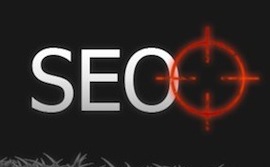 We sure have come a long way in the search engine optimization (SEO) business.
We sure have come a long way in the search engine optimization (SEO) business.
It seems like only yesterday (actually it was 1998) I was gaming Alta Vista for search rankings. I would find pages that ranked highly for two word keyword phrases and I would replace each instance of the keyword with my own two word keyword phrase. Then I would replace all the other words in the document with words that made sense in the context of my new keyword, being careful to keep the same keyword count. That’s how I got to be No. 1 for “free mp3”.
Ah the good old days! That was before I became a “white hat†evangelist.
Nowadays SEO is quite a bit different.
In today’s search world there are countless more variables at play in addition to things that have always been associated with SEO, such as title tags, H1 tags, and everyone’s favorite topic thanks to Google, links. But many tasks that once were outside of the realm of what we used to consider SEO no longer are.
Social media signals from sites such as Facebook, Twitter, Google+, and others are now gaining in stature. Social media platforms like blogs and communities need to be aligned with SEO best practices to fully leverage SEO potential.
Even personal reputation is becoming important. Additionally, leveraging your social media program for link building is critical for many sites. And that’s just the social media end of things.
Another important off-shoot of social media optimization is video optimization. Understanding how to effectively optimize video content, efficiently distribute it, and measure it in meaningful ways is all part of the expected skill set of today’s SEO expert.
Certainly user experience is just as important. That is especially true if one wants to maximize conversion from the traffic generated by organic search. Things like bounce rate, site speed and most recently, content above the fold, are all key elements in today’s ranking algorithms of the major search engines.
Paid search needs a strong co-optimization plan and high degree of collaboration with the organic search team for maximum results on both sides of the aisle.
Having said all of that, there is still more. Press release alignment, display advertising, and other offline advertising needs to be accounted for, especially from a brand search perspective. Additionally, you must have a good understanding of your campaigns and business model so that you can report in meaningful ways that help people understand performance.
That leads us into yet another area of critical importance: analytics and the ability to understand data, mine data, and use data effectively to drive strategy and the intelligent allocation of resources given a limited budget for maximum ROI.
And then of course there are all the tools that go with all of these systems. SEO tools (of which there are many), analytics tools, social media monitoring tools, paid search tools and I am sure there are other tools that folks use that could be classified in other ways.
The point is, it’s a lot of stuff to have to know. More importantly, the knowledge base required to effectively use these tools and to execute all of the activities described in this article is no small challenge and it crosses over into every digital marketing discipline.
To be a good modern SEO, you have to be able to play in everyone’s pond. And that’s why SEO should be called integrated digital marketing. But I’m still going to call it SEO. Mostly cause it reminds me of the good old days.
SES Toronto 2012 is June 11-13. Register before May 11 and save up to $300!
Article source: http://searchenginewatch.com/article/2172836/SEO-Should-Be-Called-Integrated-Digital-Marketing
